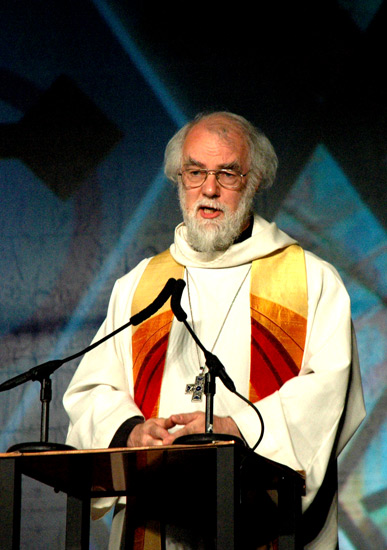After more than thirty years of membership decline, Anglicans in Canada have decided to face the crisis and no longer have any "head-in-the-sand" denial, as one priest put it.
"Flood warnings have been issued, the waters are rising, and as a Diocese, we are beginning to act," said the Rev. Peter Parker, who is part of a team that was commissioned to make recommendations on how to reverse decline.
"We are leading the Canadian Church in facing the crisis that all Dioceses are facing," he added, according to the Diocesan Post.
During Parker's 35 years serving as a priest in the Anglican Diocese of British Columbia, he has never seen the diocese post any "significant growth" in membership.
A 2006 independent study found that membership in the Canadian region of the worldwide Anglican Communion fell between 1961 and 2001 by 53 percent to under a million members. Moreover, the rate of decline was increasing. While church membership decreased by 13 percent between 1981 and 1991, the next decade saw a loss of 20 percent.
If the diocese "sailed on" the way it has been the past three decades, it would have headed for the rocks, said Parker as he described the dire situation.
But in 2004, British Columbia Bishop James Cowan halted the ship and charged the diocese to "plot a new course."
Over the last five years, the Diocesan Transformation Team dedicated themselves to countless meetings, discussions and consultations to assess the situation and determine possible changes to revive the diocese.
One of the recommended changes is closing 19 of the diocese's 52 parishes. Some churches would move out and into a nearby church to form larger congregations which would translate to greater financial support for the church's mission.
In a report released this week, the team described the closures as "an approach for transforming and regenerating our Diocese in a post-Christian society."
The goal, the team said, is not merely survival but "transformational."
Decline in church membership and financial support is a problem common to all mainline churches across Canada and the U.S. But smaller numbers isn't the only thing plaguing many churches.
Bishop Cowan cites skepticism, questioning core Christian doctrines and a reduction of faith as other problems many churches today, especially in the Diocese of British Columbia, are facing.
"We live in a culture which talks about being spiritual but not religious and rather than lifting and presenting the spiritual nature of our religion we have, over the years, eliminated as much of it as we can, hoping that we can keep religion alive with the novel and with an undefined good will," he said, according to the Diocesan Post.
Thus restructuring the diocese needs to be coupled with "spiritual renewal and the reclamation of those aspects of faith which are both central and essential to Christianity," Cowan stressed. Otherwise, decline will continue.
The focus needs to be numerical and spiritual stability and growth, he indicated.
Fearful and at the same time excited for the future, the Rev. Parker stated, "The Church of Jesus Christ in its Anglican expression is not going to disappear.
"Though we have as yet only hints and glimpses of what the church might look like in five, ten, or twenty years, we are gaining a sense of excitement about the possibilities for new forms of ministry, new expressions of the Mission of Jesus Christ to heal and transform the world."
The report drafted by the Diocesan Transformation Team will be presented to the Synod – the governing body of the diocese – in March where it will be discussed and voted upon.
















